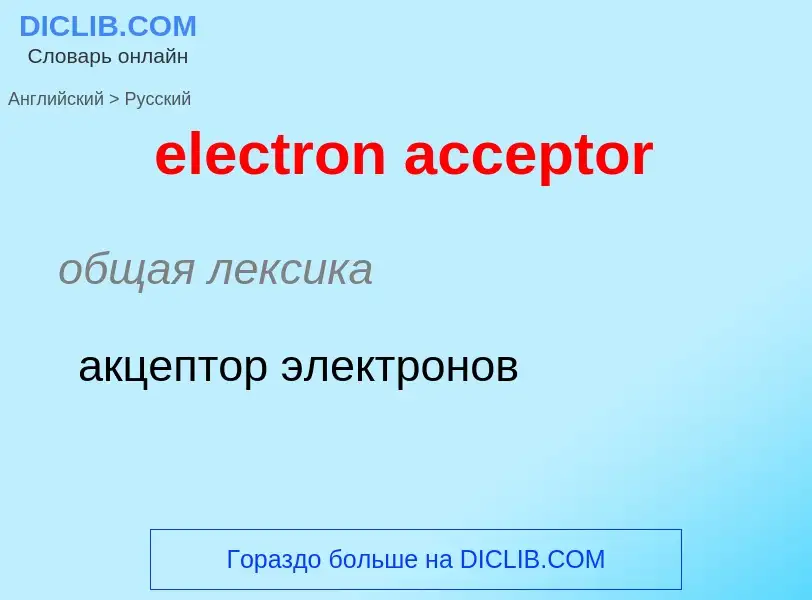Translation and analysis of words by artificial intelligence
On this page you can get a detailed analysis of a word or phrase, produced by the best artificial intelligence technology to date:
- how the word is used
- frequency of use
- it is used more often in oral or written speech
- word translation options
- usage examples (several phrases with translation)
- etymology
electron acceptor - translation to russian
общая лексика
акцептор электронов
общая лексика
акцепторная примесь
[ək'septɔ:ək'septə]
общая лексика
акцептор
приемщик
акцептант
Смотрите также
существительное
общая лексика
приёмщик
[ком.] акцептант
физика
акцептор
Смотрите также
Definition
Wikipedia
An electron acceptor is a chemical entity that accepts electrons transferred to it from another compound. It is an oxidizing agent that, by virtue of its accepting electrons, is itself reduced in the process. Electron acceptors are sometimes mistakenly called electron receptors.
Typical oxidizing agents undergo permanent chemical alteration through covalent or ionic reaction chemistry, resulting in the complete and irreversible transfer of one or more electrons. In many chemical circumstances, however, the transfer of electronic charge from an electron donor may be only fractional, meaning an electron is not completely transferred, but results in an electron resonance between the donor and acceptor. This leads to the formation of charge transfer complexes in which the components largely retain their chemical identities.
The electron accepting power of an acceptor molecule is measured by its electron affinity which is the energy released when filling the lowest unoccupied molecular orbital (LUMO).
The energy required to remove one electron from the electron donor is its ionization energy (I). The energy liberated by attachment of an electron to the electron acceptor is the negative of its electron affinity (A). The overall system energy change (ΔE) for the charge transfer is then . For an exothermic reaction, the energy liberated is of interest and is equal to .
In chemistry, a class of electron acceptors that acquire not just one, but a set of two paired electrons that form a covalent bond with an electron donor molecule, is known as a Lewis acid. This phenomenon gives rise to the wide field of Lewis acid-base chemistry. The driving forces for electron donor and acceptor behavior in chemistry is based on the concepts of electropositivity (for donors) and electronegativity (for acceptors) of atomic or molecular entities.


